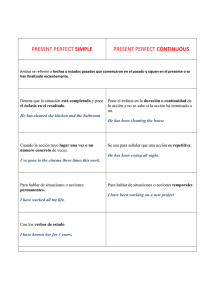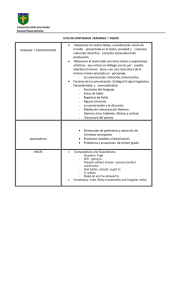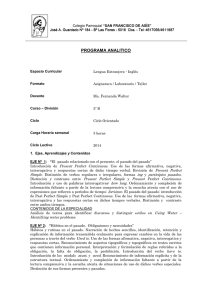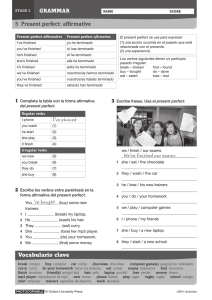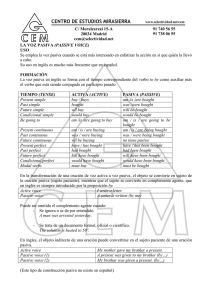I have done (present perfect 1)
Anuncio
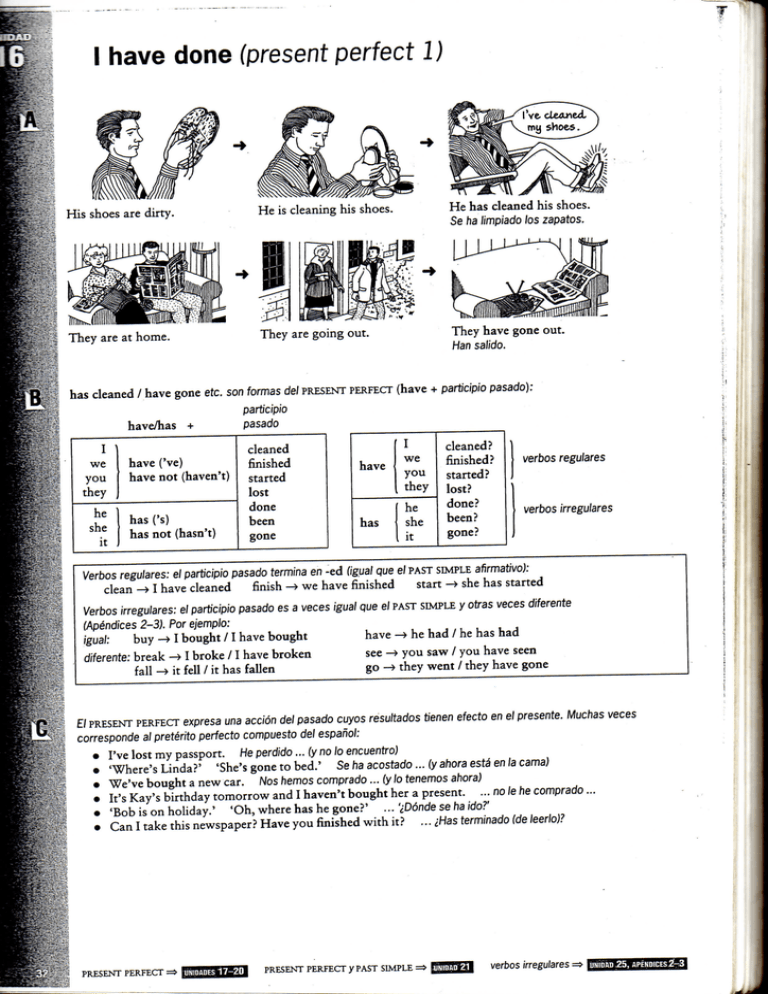
I have done (present perfect 1)
His shoes are dirty.
He is cleaning his shoes.
He has cleaned his shoes.
Se ha limpiado los zapatos.
They are at home.
They are going out.
They have gone out.
Han salido.
i
has cleaned / have gone etc. son formas del PRESENT PERFECT (have + partícipio pasado):
have/has
I
we
you
they
he
she
it
+
have ('ve)
have not (haven't)
has Cs)
has not (hasn't)
partícipio
pasado
cleaned
finished
started
lost
done
been
gone
I
have
has
we
you
they
he
she
it
cleaned?
finished.'
started?
lost?
done?
been?
verbos regulares
verbos irregulares
gone?
Verbos regulares: el partícipio pasado termina en -ed (igual que el PAST SIMPLE afirmativo);
clean
I have cleaned
finish
we have finished start -> she has started
Verbos irregulares: el partícipio pasado es a veces igual que el PAST SIMPLE y otras veces diferente
(Apéndices 2-3). Por ejemplo:
igual:
buy I bought / 1 have bought
have —> he had / he has had
diferente: break
I broke / 1 have broken
fall - 4 it fell / it has fallen
see - ) you saw / you have seen
go -> they went / they have gone
El PRESENT PERFECT expresa una acción del pasado cuyos resultados tienen efecto en el presente. Muchas veces
corresponde al pretérito perfecto compuesto del español:
• Tve lost my passport. He perdido... (y no lo encuentí-o)
• 'Where's Linda?' 'She's gone to bed.' Se ha acostado ...(y ahora está en la cama)
• We've bought a new car. Nos hemos comprado... fy lo tenemos ahora)
• It's Kay's birthday tomorrow and I haven't bought her a present. ... no le he comprado...
• 'Bob is on holiday.' ' O h , where has he gone?' ...'¿Dónde se ha ido?'
• Can I take this newspaper? Have you finished w i t h it? ... ¿Has terminado (de leerlo)?
PRESENT PERFECT:
UNIDADES 17-20
PRESENT PERFECT y PAST SIMPLE =
UNIDAD 21
verbos irregulares --
UNIDAD 25, APÉNDICES¿-3
